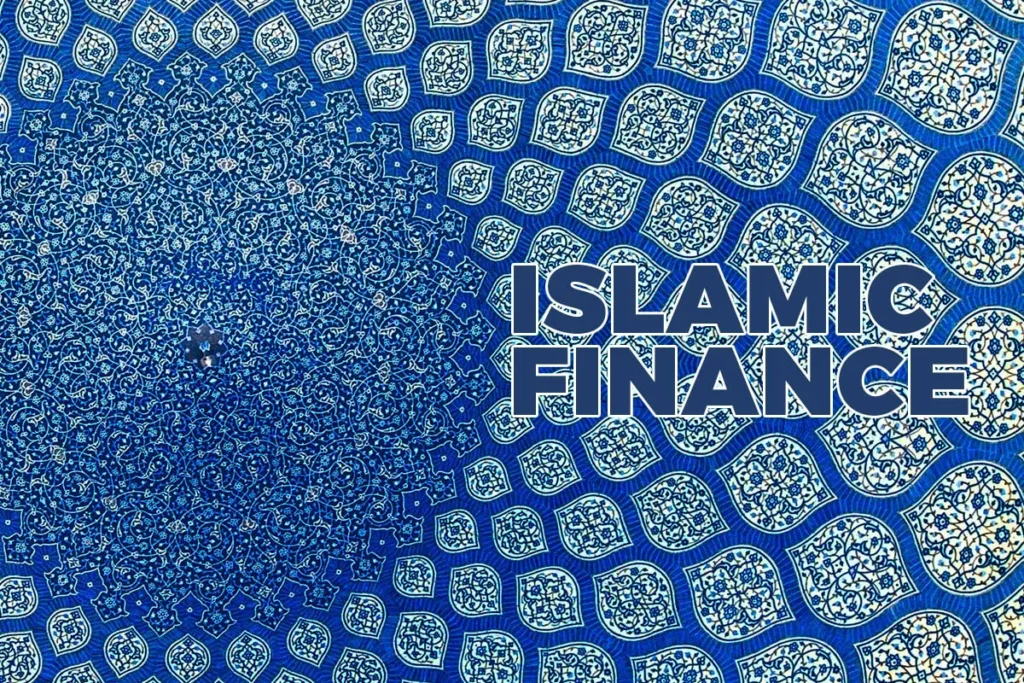Islamic finance growth is transforming the global financial landscape. With projections estimating that Islamic finance assets will surpass $7.5 trillion by 2028, this sector is gaining momentum as a powerful and ethical alternative to conventional banking. Rooted in Sharia-compliant principles, Islamic finance emphasizes fairness, transparency, and risk-sharing, attracting both Muslim and non-Muslim investors worldwide. This article explores the drivers behind this growth, key trends, challenges, and the opportunities that lie ahead.
What Is Islamic Finance?
Islamic finance operates under Islamic law (Sharia), which prohibits interest (riba), excessive uncertainty (gharar), and investments in industries like alcohol, gambling, or pork. Instead, it promotes ethical investments, profit-sharing, and asset-backed financing. Common Islamic finance products include:
- Sukuk: Islamic bonds backed by tangible assets.
- Mudarabah: Profit-sharing partnerships.
- Murabaha: Cost-plus financing for purchases.
- Takaful: Islamic insurance based on mutual cooperation.
These products cater to a growing demand for ethical and socially responsible financial solutions, aligning with global trends toward sustainability.

Why Islamic Finance Is Growing Rapidly
The projected growth of Islamic finance to over $7.5 trillion by 2028 is driven by several factors. According to industry reports, the global Islamic finance market was valued at approximately $4.5 trillion in 2023, and it’s expected to grow at a compound annual growth rate (CAGR) of around 10-12% over the next five years. Here’s why:
Rising Demand in Muslim-Majority Countries
Muslim-majority countries, particularly in the Middle East, Southeast Asia, and Africa, are key drivers of Islamic finance growth. Nations like Saudi Arabia, Malaysia, and the United Arab Emirates have robust Islamic banking systems. For instance, Saudi Arabia’s Vision 2030 initiative promotes Islamic finance to diversify its economy, while Malaysia leads in sukuk issuance, accounting for nearly 50% of the global market.

Global Appeal Beyond Muslim Communities
Islamic finance is no longer limited to Muslim-majority regions. Countries like the United Kingdom, Luxembourg, and Singapore are embracing Islamic finance to attract global investors. Non-Muslims are increasingly drawn to its ethical principles, which align with environmental, social, and governance (ESG) criteria. This universal appeal is expanding the market significantly.
Technological Advancements
Technology is revolutionizing Islamic finance. Fintech platforms are making Sharia-compliant products more accessible through mobile apps and digital banking. Blockchain and smart contracts are also being explored to enhance transparency in sukuk and other transactions. These innovations are attracting younger, tech-savvy investors, further fueling Islamic finance growth.
Key Trends Shaping the Industry

The Islamic finance sector is evolving rapidly, with several trends shaping its trajectory toward the $7.5 trillion milestone.
Surge in Sukuk Issuance
Sukuk, often referred to as Islamic bonds, are a cornerstone of Islamic finance growth. In 2023, global sukuk issuance reached over $200 billion, with governments and corporations using these instruments to fund infrastructure projects, renewable energy, and more. Green sukuk, which finance environmentally friendly projects, are gaining popularity, aligning with global sustainability goals.
Growth of Islamic Fintech
Islamic fintech startups are disrupting traditional banking by offering digital wallets, peer-to-peer lending, and crowdfunding platforms that comply with Sharia principles. For example, companies like Wahed Invest and Yielders provide Sharia-compliant investment opportunities, making Islamic finance more accessible to retail investors.
Expansion of Takaful
The takaful (Islamic insurance) market is growing as demand for ethical insurance rises. Unlike conventional insurance, takaful operates on mutual risk-sharing, appealing to consumers seeking transparency. The global takaful market is expected to grow at a CAGR of 14% through 2028, driven by demand in Asia and the Middle East.
Challenges Facing Islamic Finance Growth
Despite its promising outlook, Islamic finance faces several challenges that could impact its growth trajectory.
Regulatory Differences
Islamic finance operates under diverse regulatory frameworks across countries, creating complexities for global standardization. For instance, Sharia interpretations vary between regions, affecting product structures and investor confidence. Harmonizing regulations could accelerate Islamic finance growth but remains a significant hurdle.
Limited Awareness
While awareness is increasing, many potential investors, especially in non-Muslim-majority countries, remain unfamiliar with Islamic finance principles. Educating consumers about its benefits and dispelling misconceptions is critical to expanding the market.
Competition with Conventional Finance
Conventional banks often have more established infrastructures and broader product offerings, posing competition for Islamic financial institutions. To stay competitive, Islamic banks must innovate and scale their operations while maintaining Sharia compliance.
Opportunities for Investors and Businesses
The projected growth of Islamic finance to $7.5 trillion by 2028 presents exciting opportunities for investors, businesses, and governments.
Investment Opportunities
Investors can tap into diverse asset classes, from sukuk to real estate and equity funds, all compliant with ethical principles. The rise of green sukuk offers opportunities to invest in sustainable projects, such as solar farms and eco-friendly infrastructure, aligning financial goals with environmental impact.
Business Expansion
Businesses in sectors like real estate, agriculture, and technology can leverage Islamic finance to fund expansion. Murabaha and ijara (leasing) contracts provide flexible financing options without the burden of interest-based loans, appealing to entrepreneurs seeking ethical funding.
Government Support
Governments in Muslim-majority countries are increasingly supporting Islamic finance to drive economic growth. For example, Indonesia’s issuance of sovereign sukuk has funded infrastructure projects, while Qatar’s Islamic banking sector supports its ambition to become a global financial hub.
The Role of Islamic Finance in Global Economies
Islamic finance growth is not just a financial trend; it’s reshaping global economies. By promoting ethical and inclusive financial systems, it contributes to economic stability and social welfare. For instance:
- Financial Inclusion: Islamic finance reaches underserved populations, such as those without access to conventional banking, fostering economic empowerment.
- Sustainable Development: Green sukuk and ESG-aligned investments support the United Nations’ Sustainable Development Goals (SDGs).
- Economic Diversification: Countries like Saudi Arabia and Malaysia are using Islamic finance to reduce reliance on oil and build resilient economies.
As Islamic finance grows, its integration into mainstream financial systems will likely deepen, creating a more inclusive and ethical global economy.
What’s Next for Islamic Finance?

Looking ahead, Islamic finance growth shows no signs of slowing. By 2028, the industry is poised to surpass $7.5 trillion, driven by innovation, government support, and global demand for ethical finance. To sustain this momentum, stakeholders must address regulatory challenges, invest in education, and embrace technology.
Predictions for 2028
- Digital Transformation: Islamic fintech will dominate, with AI and blockchain enhancing efficiency and trust.
- Global Expansion: Non-Muslim-majority countries will increase their share of the Islamic finance market.
- Sustainability Focus: Green sukuk and ESG-compliant products will attract environmentally conscious investors.
How to Get Involved
For those interested in Islamic finance growth, now is the time to act. Here are some steps to get started:
- Educate Yourself: Learn about Sharia-compliant products and their benefits.
- Explore Investment Options: Consider sukuk, takaful, or Islamic equity funds.
- Partner with Experts: Work with Islamic financial institutions or fintech platforms to navigate opportunities.
Conclusion
Islamic finance growth is a global phenomenon, with assets projected to exceed $7.5 trillion by 2028. Its ethical principles, innovative products, and alignment with sustainability make it a compelling choice for investors and businesses worldwide. By addressing challenges and leveraging opportunities, Islamic finance is set to play a pivotal role in shaping a more inclusive and equitable financial future. Whether you’re an investor, entrepreneur, or simply curious, the rise of Islamic finance offers a wealth of possibilities to explore.
Read More: Airbus Boosts Aviation Growth in UAE with New Plans














